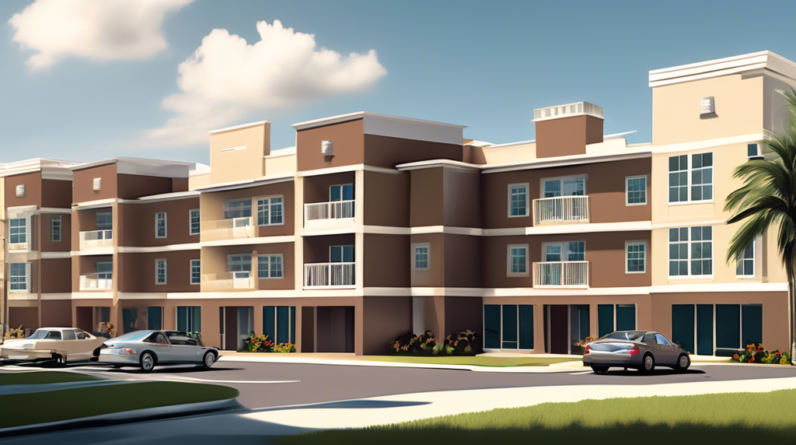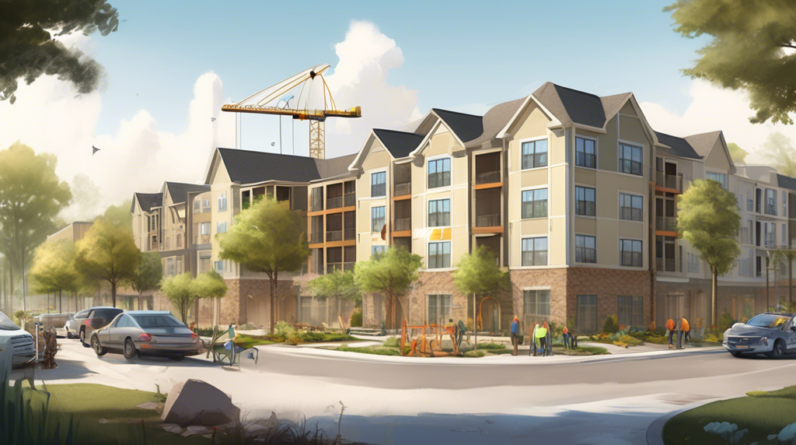Finding Solutions to Orlando’s Housing Challenges
Orlando, a city renowned for its magical theme parks and vibrant tourism industry, faces a pressing issue: a growing housing affordability crisis. As the City Beautiful continues to attract new residents and visitors, the demand for housing has skyrocketed, outpacing the supply and driving up prices. This situation poses significant challenges for individuals, families, and the overall well-being of the community.
Understanding the Scope of the Problem
Orlando’s housing challenges are multifaceted and stem from a confluence of factors:
- Population Growth: Orlando is one of the fastest-growing cities in the United States, with a steady influx of new residents seeking job opportunities, a favorable climate, and a high quality of life. This population surge has placed immense pressure on the housing market.
- Limited Housing Supply: The construction of new housing units has not kept pace with the rapid population growth, leading to a shortage of available and affordable options.
- Wage Stagnation: While housing costs have been rising steadily, wages for many working-class residents have not kept up, making it increasingly difficult to afford rent or mortgage payments.
- Tourism Industry Reliance: Orlando’s economy heavily relies on the tourism industry, which often provides seasonal or low-wage jobs that may not provide sufficient income to cover housing costs.
- Limited Affordable Housing Options: The availability of affordable housing units, such as subsidized apartments and public housing, falls short of the growing demand, leaving many low- and moderate-income households struggling to find suitable accommodations.
The Impact on Orlando’s Residents
The housing affordability crisis in Orlando has far-reaching consequences for its residents:
- Housing Instability: Many residents face difficulty finding affordable housing within their budget, leading to frequent moves, overcrowding, or even homelessness.
- Financial Strain: High housing costs consume a significant portion of residents’ income, leaving them with limited resources for other essential needs such as food, healthcare, and transportation.
- Limited Opportunities: The lack of affordable housing options can hinder individuals’ ability to pursue education, job opportunities, or personal growth, as they may be forced to prioritize housing costs over other aspirations.
- Community Impact: The housing crisis can contribute to social and economic disparities, as well as strain community resources and services.
Seeking Solutions: A Collaborative Approach
Addressing Orlando’s housing challenges requires a comprehensive and collaborative approach involving stakeholders from various sectors, including government agencies, private developers, community organizations, and residents themselves. Here are some potential solutions:
Increasing Housing Supply
- Encourage Density: Promote the development of multi-family housing units, such as apartments and townhomes, in urban areas to increase housing density and maximize land use.
- Streamline Permitting Processes: Expedite the approval process for new housing construction projects to encourage developers to invest in building more units.
- Incentivize Affordable Housing Development: Offer financial incentives, such as tax breaks or density bonuses, to developers who incorporate affordable housing units into their projects.
- Explore Innovative Housing Models: Consider alternative housing options such as accessory dwelling units (ADUs), tiny homes, and co-living spaces to provide more diverse and affordable choices.
Supporting Affordable Housing Initiatives
- Increase Funding for Affordable Housing Programs: Allocate more public funds to support existing affordable housing programs, such as Section 8 vouchers and public housing, to assist low-income families.
- Preserve Existing Affordable Housing: Implement policies and programs to protect existing affordable housing units from being converted to market-rate housing, ensuring a continued supply of affordable options.
- Promote Inclusionary Zoning: Encourage or require developers to include a certain percentage of affordable housing units in new developments, ensuring a mix of housing options in all neighborhoods.
Addressing Wage Stagnation
- Support Workforce Development: Invest in job training and workforce development programs to help residents acquire skills that lead to higher-paying jobs.
- Promote a Living Wage: Advocate for policies that promote a living wage, ensuring that all workers earn enough to afford basic necessities, including housing.
Strengthening Community Partnerships
- Collaboration between Government and Nonprofits: Foster partnerships between government agencies and nonprofit organizations to leverage resources, expertise, and community outreach efforts.
- Engage Residents in the Solution: Involve residents, particularly those most affected by the housing crisis, in the decision-making process to ensure their voices are heard and their needs are addressed.
Conclusion: A Shared Responsibility
Finding solutions to Orlando’s housing challenges requires a collective effort and a commitment from all stakeholders. By increasing housing supply, supporting affordable housing initiatives, addressing wage stagnation, and strengthening community partnerships, Orlando can work towards creating a more equitable and inclusive housing market that benefits all residents. The City Beautiful has the opportunity to become a model for other communities facing similar challenges by implementing innovative solutions and prioritizing the well-being of its entire population.







